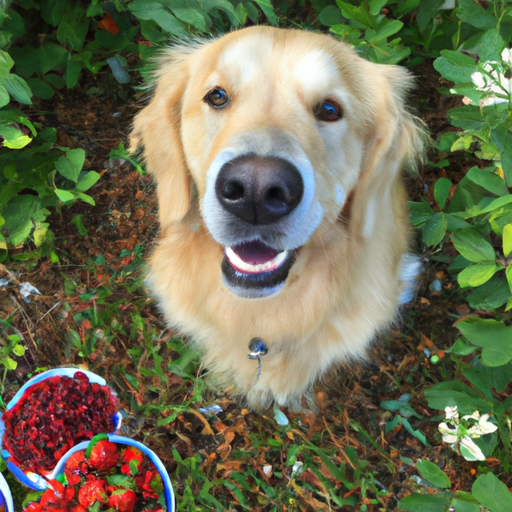As a loving and responsible dog owner, it’s vital to know what foods you can safely share with your furry friend. In this article, we’ll dive deep into the world of berries and their safety for dogs. Here, we’ll answer that crucial question: What kind of berries can dogs eat?
Table of Contents
- Safe Berries for Dogs
- Toxic Berries for Dogs
- Benefits of Berries for Dogs
- Feeding Berries to Your Dog
- FAQs
Safe Berries for Dogs
There are several types of berries that dogs can safely consume. These include:
-
Blueberries: These small-sized berries are a superfood packed with antioxidants, fiber, and vitamins C and K. They’re a great low-calorie treat for dogs.
-
Strawberries: Strawberries are safe for dogs to consume and are packed with fiber, vitamin C, and a natural enzyme that can help whiten your dog’s teeth.
-
Raspberries: In moderation, raspberries are safe for dogs. They’re low in sugar and calories but high in fiber, manganese, and vitamin C. However, they contain small amounts of xylitol, so limit your dog’s intake to less than a cup.
-
Blackberries: Blackberries are also safe for dogs to eat. They’re packed with antioxidants, fiber, and vitamins C and K.
Remember, even though these berries are safe, they should be given in moderation. Too much can lead to gastrointestinal upset.
Toxic Berries for Dogs
Just as there are safe berries, there are also berries that are toxic and potentially fatal to dogs. These include:
-
Grapes: This includes all types of grapes, including dried ones (raisins). They can cause sudden kidney failure in dogs.
-
Cherries: Cherries contain cyanide, which is toxic to dogs. The pits, stems, and leaves contain higher amounts.
-
Holly berries: Holly berries can cause vomiting, diarrhea, and stupor in dogs.
-
Mistletoe berries: Mistletoe can cause significant gastrointestinal upset, breathing problems, and even hallucinations in dogs.
-
Juniper berries: While some types of juniper berries are safe, others can cause upset stomach and kidney problems.
Benefits of Berries for Dogs
Berries can be a healthy addition to your dog’s diet, providing a range of benefits:
-
High in Antioxidants: Berries are packed with antioxidants that can help reduce inflammation and fight against disease.
-
Rich in Vitamins and Minerals: Berries contain a range of vitamins and minerals that can contribute to your dog’s overall health.
-
Low in Calories: Berries are low in calories and can be a great treat for dogs on a diet.
-
Dental Health: Certain berries, like strawberries, can help whiten your dog’s teeth.
Feeding Berries to Your Dog
When feeding your dog berries, always follow these guidelines:
-
Wash thoroughly: Always wash berries before feeding them to your dog to remove any pesticides or chemicals.
-
Serve in moderation: Too much of a good thing can be bad. Berries should be an occasional treat, not a meal substitute.
-
Watch for allergic reactions: Even safe berries can cause allergic reactions in some dogs. If you notice any changes in your dog’s behavior or health after feeding them berries, consult your vet immediately.
FAQs
Can dogs eat cranberries?
Cranberries are generally safe for dogs, but some dogs may not like their tart taste. Also, too many cranberries can lead to upset stomach.
Can dogs eat boysenberries?
Yes, boysenberries are safe for dogs to eat in moderation.
Can dogs eat elderberries?
No, elderberries are not safe for dogs. They contain cyanide and can cause vomiting, diarrhea, and other health problems.
How often can I feed my dog berries?
Berries should be an occasional treat. Aim for a few times per week, and always in moderation.
Can puppies eat berries?
Yes, puppies can eat the same berries as adult dogs, but in smaller amounts. Always introduce new foods slowly and watch for any signs of allergic reactions or upset stomach.
In conclusion, while many berries are safe and healthy for dogs to eat, always feed them in moderation and watch for any signs of distress or discomfort. When in doubt, always consult with your vet.



